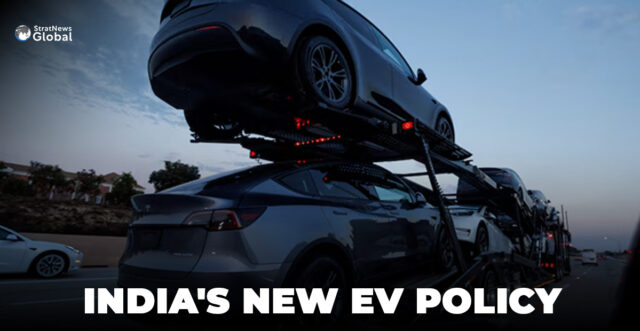Elon Musk’s Tesla is not planning to manufacture cars in India, union minister for heavy industries, HD Kumaraswamy, said on Monday, as the Indian government rolled out its new electric vehicle policy, with the U.S.-based EV-maker currently focusing on importing vehicles.
India will significantly cut import taxes for foreign automakers that pledge to invest in domestic EV production lines.
The policy, which has been in the works for a year, was originally designed to attract Tesla to set up manufacturing in the country, but CEO Elon Musk put his investment plans for India on hold last year.
Tesla Prioritises Imports
Tesla’s immediate plan is to import cars into India even though Musk has repeatedly said that the country’s tariffs on imported vehicles are too high.
Tesla did not immediately respond to an email seeking comment outside of U.S. business hours.
Mercedes-Benz, Volkswagen, Hyundai, and Kia have, however, shown interest in India’s EV manufacturing policy, Kumaraswamy told reporters.
“Tesla, we are not actually expecting (interest) from them … They are not interested in manufacturing in India,” Kumaraswamy said.
Skoda Auto Volkswagen India said it was closely monitoring the development of EV-related policies in India and assessing their implications.
‘Long-Term Strategy’
“Based on this, we define the appropriate next steps in line with our long-term strategy,” the company said in a statement.
Companies will be allowed to import a limited number of electric cars at a reduced duty of 15% versus the current 70% if they commit to investing around $500 million to build EVs in the country, the Ministry of Heavy Industries said in a statement.
The companies will be required to set up manufacturing facilities in India, the world’s third-largest car market, commence operations within three years of approval and meet certain local content requirements.
Domestic players like Tata Motors and Mahindra & Mahindra have invested millions of dollars in local EV manufacturing, with more to come, and lobbied against duty cuts.
The new scheme allows limited investment in machines, research and charging. A lack of fast chargers has deterred potential purchasers in the country’s nascent EV market.
India’s EV sales, dominated by Tata Motors, accounted for just 2.5% of total car sales of 4.3 million in 2024. The government wants to increase this to 30% by 2030.
(With inputs from Reuters)





